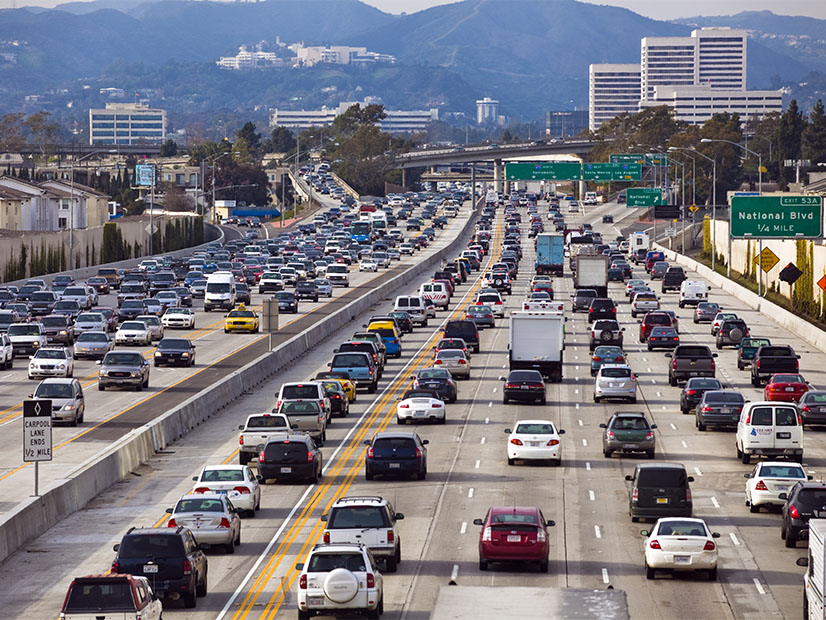The D.C. Circuit Court of Appeals on April 9 rejected a challenge from Republican state attorneys general and others against California’s ability to set its own regulations on automobile emissions under the Clean Air Act (22-1081).
The three-judge panel threw out arguments that EPA’s decision reinstating stricter requirement was against the law, finding that the petitioners lacked standing to bring up such arguments. But the panel did address their argument that EPA violated the constitutional requirement that the federal government treat states equally in terms of their sovereign authority, rejecting it on the merits.
States generally have broad discretion in regulating emissions under the CAA, but when it comes to standards for new automobiles, that is generally not the case. The law allows the EPA administrator to grant exemption to states that passed their own emissions controls before March 30, 1966, if the state standards are at least as protective of public health and welfare as the federal rules.
California is the only state that has taken advantage of that, and EPA has to approve the waiver as long as the state standards are not arbitrary and capricious and do not require extraordinary conditions.
“The federal regulations continue to act as the floor for emissions regulations, but California can seek to enact its own, more stringent regulatory program above those federal requirements,” the court said.
California was the only state to have enacted its own standards when the CAA was enacted in 1967, and its air quality and pollution issues would not have been addressed by the laxer federal standards proposed back then.
“At the same time, automobile manufacturers were growing concerned that other states might begin regulating automobile emissions, subjecting them to a patchwork of regulatory obligations and significantly increasing manufacturing costs,” the court said. “Congress enacted Sections 209(a) and (b) to balance the fears of automobile manufacturers, California’s need for bespoke regulation and the federal interest in allowing California to test new emissions regulations.”
California still has more problems with air pollution than most of the country, being home to seven of the 10 worst areas for ozone pollution and six of the 10 worst areas for particulate matter. Those conditions are worsened by climate change, which also impacts the large agricultural business in California, its water supply and wildfire susceptibility.
The Golden State first tried to get a waiver to cover greenhouse gas emissions in 2005; it was updated in 2012 when the state sought to promulgate a new set of regulations called the Advanced Clean Car Program. That included a requirement that 15% of manufacturers’ fleets be electric cars by model year 2025.
EPA initially granted the waiver in 2013, then rescinded it under the Trump administration. The agency reversed itself in 2022 under President Joe Biden.
The state attorneys general put forward an argument that EPA could not grant California the waiver because the 15th Amendment prohibits Congress from using its Commerce Clause power in a way that withdraws sovereignty from some states, but not others. The same argument has been brought up in two other circuit courts, which also rejected it.
EPA, and several Democratic state attorneys general who joined in the defense, argued that the petitioners were not trying to increase their own sovereign authority, but instead limit California’s authority.
While the D.C. Circuit noted that the Supreme Court has accepted that kind of “leveling down” remedy when states have invoked the right to equal treatment, no court has ever applied the equal sovereignty principle as a limit on the Commerce Clause or other powers allocated to Congress.
The Republican attorneys general argued that the principle bars Congress from enacting legislation under the Commerce Clause that leaves some states with more sovereign authority than others, regardless of its reasons. That might apply to the 15th Amendment, the court said, but not the Commerce Clause, which gives Congress the power to regulate commerce between states, foreign nations and tribes.
“The fact that some constitutional clauses explicitly contain an equality-based guarantee therefore supports a negative inference — though perhaps only a mild one — that the Commerce Clause is not so constrained,” the court said.




